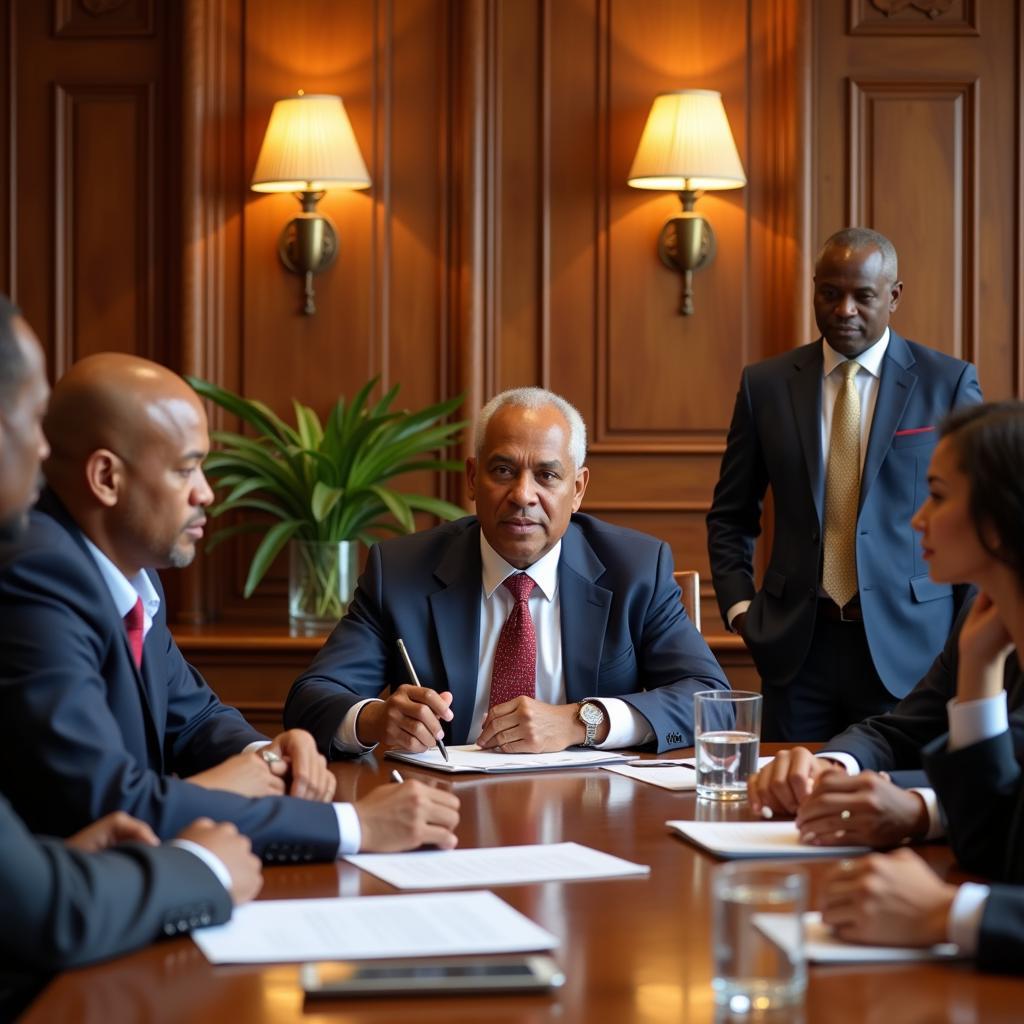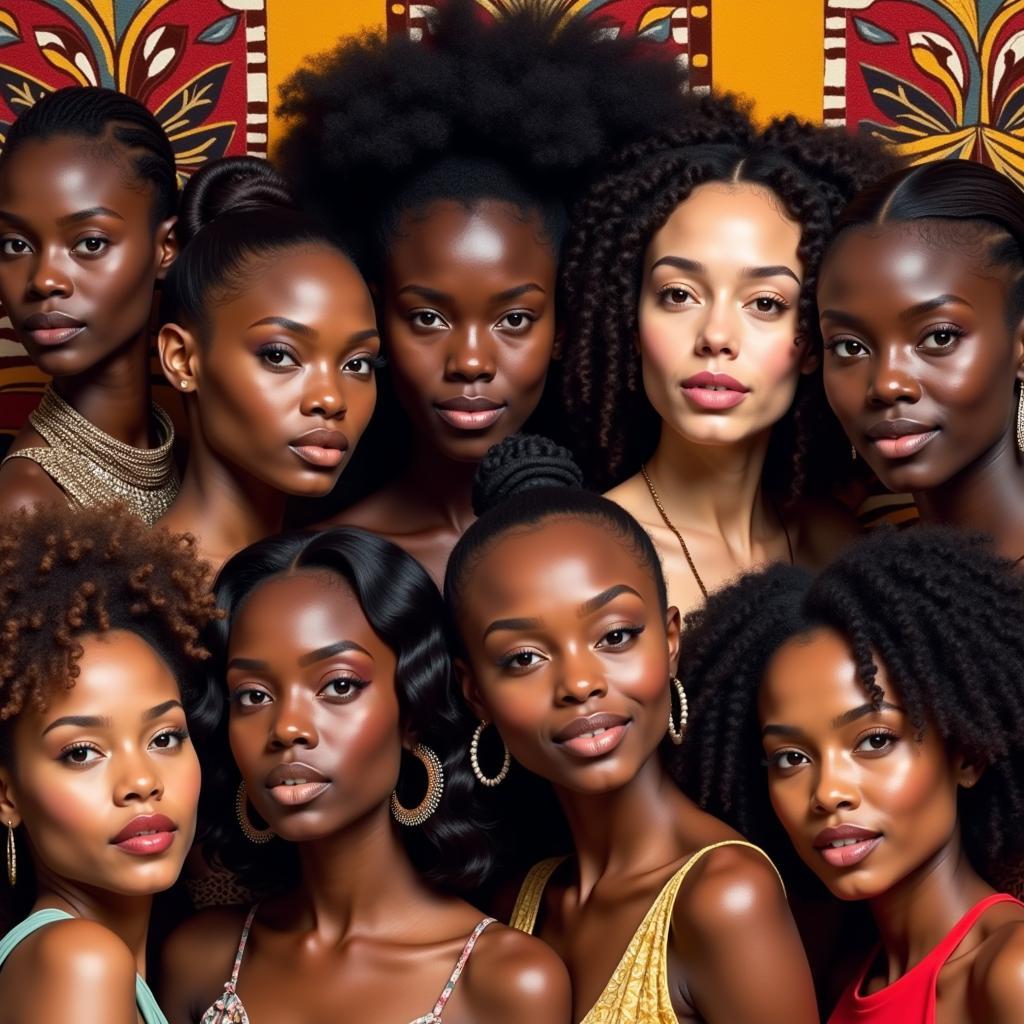Exploring the African Union Countries
The African Union (AU), a continental body encompassing nearly all African countries, plays a crucial role in fostering unity, cooperation, and development across the continent. This article delves into the significance of the African Union Countries, exploring their shared history, diverse cultures, and collective pursuit of a prosperous future. We’ll examine the organization’s structure, its impact on various aspects of African Life, and the challenges and opportunities that lie ahead. After the formation of the countries in african union, the continent has seen significant improvement in several sectors.
A Continent United: The Formation and Structure of the AU
The African Union, established in 2002, succeeded the Organization of African Unity (OAU). The OAU, founded in 1963, played a pivotal role in the fight against colonialism and apartheid. The transition to the AU marked a shift towards a more integrated and proactive approach to addressing the continent’s challenges. The AU aims to accelerate political and socio-economic integration among its member states. It strives to promote peace, security, and stability across the continent, advocate for democratic governance and human rights, and foster sustainable development.
The AU comprises various organs, including the Assembly of Heads of State and Government, the Executive Council, the Permanent Representatives Committee, and the Peace and Security Council. These bodies work collaboratively to implement the AU’s agenda and address the diverse needs of its member states. The AU also collaborates with international partners to support its development initiatives.
What is the main goal of the African Union? The main goal is to promote unity and solidarity among African states.
The Rich Tapestry of African Union Countries
The African Union is a vibrant mosaic of no of countries in african union with diverse cultures, languages, and histories. From the bustling markets of Marrakech to the serene landscapes of the Serengeti, the continent offers a wealth of experiences. The AU recognizes the importance of preserving and promoting this rich cultural heritage.
Cultural Diversity and Heritage
The AU promotes cultural exchange and cooperation among its member states, recognizing that culture plays a vital role in fostering mutual understanding and respect. Various initiatives are undertaken to celebrate African arts, literature, music, and traditions.
How many official languages does the AU have? The AU has six official languages: Arabic, English, French, Portuguese, Spanish, and Swahili.
Economic Development and Integration within the AU
The African Union has placed significant emphasis on economic development and integration as key drivers of progress. The AU aims to create a continental free trade area, boost intra-African trade, and attract foreign investment. It also works towards harmonizing economic policies and promoting regional infrastructure development.
Agenda 2063: The Africa We Want
Agenda 2063, the AU’s strategic framework for development, outlines a long-term vision for the continent’s transformation. It focuses on key areas such as inclusive growth, sustainable development, and peace and security. The agenda emphasizes the importance of good governance, human capital development, and technological innovation.
How does the AU promote economic integration? The AU promotes economic integration through initiatives such as the African Continental Free Trade Area (AfCFTA).
“The AfCFTA has the potential to unlock significant economic opportunities for African countries,” states Dr. Amina Osman, a renowned economist specializing in African development. “By reducing trade barriers and fostering regional value chains, the AfCFTA can pave the way for sustained economic growth and job creation.”
Challenges and Opportunities for the African Union
While the AU has made significant strides in promoting peace, security, and development, it continues to face various challenges. These include conflict resolution, poverty, climate change, and the need for strengthened governance. However, the AU remains committed to addressing these challenges and building a prosperous future for all Africans.
The Role of Youth and Innovation
The AU recognizes the vital role of youth and innovation in driving the continent’s transformation. It promotes youth empowerment programs, supports entrepreneurship, and encourages technological advancements. The AU believes that investing in youth and innovation is crucial for achieving its long-term development goals.
“The youth of Africa are the continent’s greatest asset,” emphasizes Professor Kwame Nkrumah Jr., a leading scholar on African youth development. “By empowering them with the skills and opportunities they need, we can unlock their full potential and build a brighter future for Africa.”
Conclusion
The African Union countries represent a diverse and dynamic continent with immense potential. How many countries are there in african union? The AU plays a crucial role in fostering unity, cooperation, and development across the continent, working towards a shared vision of a prosperous and peaceful Africa. While challenges remain, the AU’s commitment to its goals and the resilience of its people offer hope for a brighter future. By embracing collaboration and innovation, the African Union countries can unlock their full potential and achieve lasting prosperity. Similar to the african countries forming union on lines of european union, the AU aims to facilitate free trade and movement among its member states.
FAQ
- What is the African Union?
- How many countries are in the African Union?
- What are the main objectives of the AU?
- How does the AU promote peace and security?
- What is Agenda 2063?
- How does the AU support economic development?
- What are the main challenges facing the AU?
If you need any further assistance, please contact us via Phone: +255768904061, Email: [email protected] or visit our office at Mbarali DC Mawindi, Kangaga, Tanzania. We have a 24/7 customer service team.

